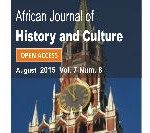Jan 23, 2022

This work by José Pinto de Azeredo, published in 1799 is considered the first work on diseases in Angola
Medical training and careers in Portugal between 1764 and 1810 is the subject of an article recently published in HCS-Manguinhos (vol. 28 n. 4, Oct-Dec 2021).
The article Medical training and careers in Portugal at the time of José Pinto de Azeredo (1764-1810) analyzes an individual trajectory in interaction with other individuals and institutions, and the contradictions of the historical context that constrained the life of José Pinto de Azeredo.
This article by Laurinda Abreu, Professor at the Department of History at Universidade de Évora, contributes to knowledge on medical training and careers at a time of change driven by Enlightenment ideas, but also a time of conflict between age-old structures and new legal frameworks.
José Pinto de Azeredo was born in Rio de Janeiro in 1764 and studied medicine at the University of Edinburgh between 1786 and 1788. In April 1789, shortly after earning recognition for his medical training, José Pinto de Azeredo was appointed “chief physician” in Angola and was also a professor at the “school of medicine” at the Misericórdia hospital of Luanda, which mostly treated soldiers. According to the article, he was a case of social and professional mobility by means of university education.
Following previous studies of the institutionalization of medical knowledge in colonial Brazil, this article also highlights the importance of studying the impact of surgeons, especially military surgeons, in the social and political construction of the country.
Read the article:
Abreu, Laurinda. Medical training and careers in Portugal at the time of José Pinto de Azeredo (1764-1810). História, Ciências, Saúde-Manguinhos [online]. 2021, v. 28, n. 4.







